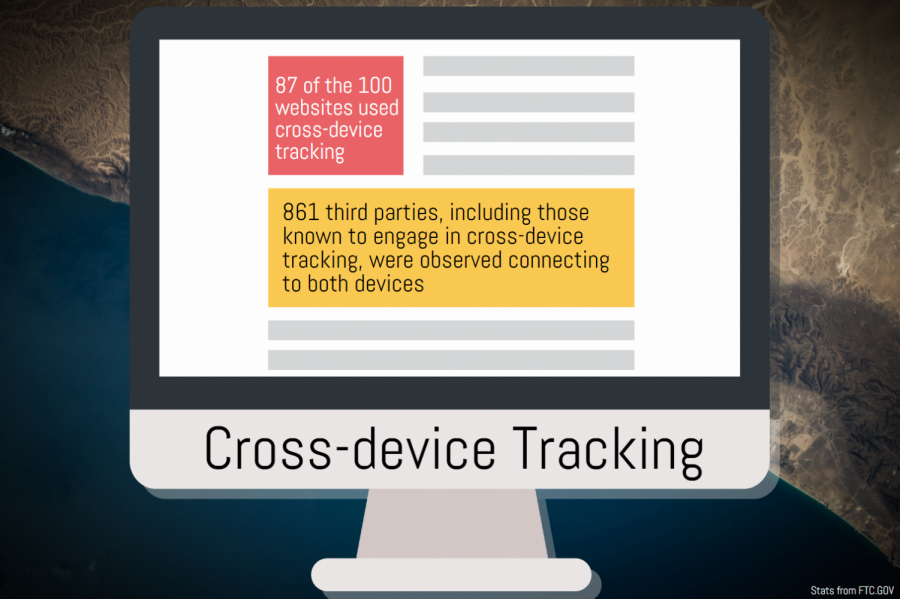Cross-device tracking: what you need to know
December 10, 2018
Junior Ananyaa Malhotra closes her SAT prep tab on her computer and picks up her phone. She scrolls through Instagram ready to think about anything else. Unfortunately, she’s not in luck; the first sponsored ad on her feed is from the College Board, telling her the date of the next SAT.
It’s no secret ads are targeted to consumers based on search history, but the internet is more connected than most think.
According to a January 2017 Federal Trade Commission staff report, companies can monitor browsing history across multiple devices for a single user, through what’s known as cross-device tracking. Companies have the ability to gather information about consumers across all their connected devices, including smartphones, tablets, personal computers, smart televisions and even smartwatches. The more devices a person uses, the more susceptible they are. Cross-device tracking allows companies to better understand consumers’ offline life, according to the report.
Cross-device tracking can create seamless experiences between different devices and help consumers see more relevant ads, FTC attorney Linda Holleran Kopp said. However, many worry that this constant supervision poses a threat to their privacy.
“Cross-device tracking can provide consumers with many positive benefits,” Kopp said. “This practice can nevertheless raise privacy concerns because consumers often cannot exert much control over their online activities being tracked across devices.”
A survey conducted on 100 popular websites by the FTC found that 87 of 100 websites used cross-device tracking.
“I think it can be used as an invasion of privacy,” sophomore Toby Goldberg said. “I don’t trust companies to be able to contain that information.”
A major concern about cross-device tracking is the lack of public awareness. In an informal survey of 32 students, 65 percent of them didn’t know companies could cross-device track, and 87 percent didn’t know the extent to which companies could. Freshman Harrison Kay and sophomore Isabella Main found it disturbing that companies have the ability to piece together a user’s offline life.
The information gathered through cross-device tracking is sold to ad companies to measure the success of advertisements. It’s also used to target consumers based on the information they look up. For example, if a consumer recently bought shoes online, they’re likely to soon receive an ad for a matching belt.
Legally, the customers often consent to this practice when they sign terms and conditions agreements.
“There is no federal law that specifically prohibits cross-device tracking,” Kopp said. “However, if a company makes promises to consumers about its tracking practices—like saying they don’t engage in such activities—and then fails to keep those promises, the FTC could bring an enforcement action against them.”
While some students may not know the scope of cross-device tracking, as long as the companies conform to the FTC Act, their actions are legal.
“In signing the terms of service that allow cross-device tracking, we’re signing away our right to privacy,” sophomore David Singer said. “While I may not agree with the policy, it’s perfectly legal, and we’re consenting to it.”








